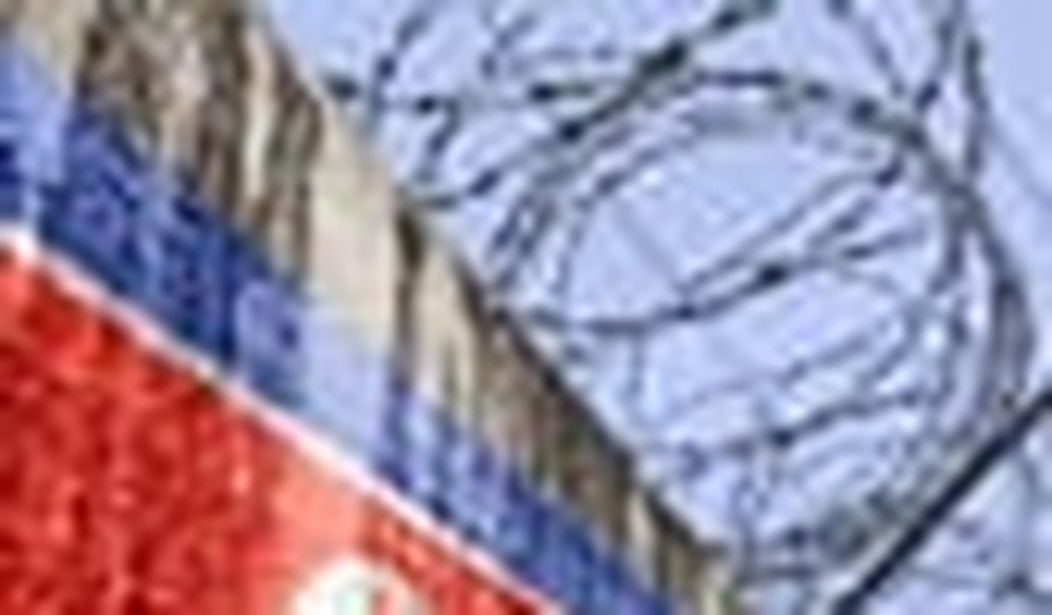At 7:27 on Saturday evening, Americans remembering the “Forgotten War” will be lighting 727 candles for peace at the Lincoln Memorial Reflecting Pool in Washington, D.C. Sixty years ago, on the 27th day of the seventh month of 1953, American General William Harrison signed the armistice ending the fighting on the Korean peninsula.
Americans may think the Korean War is over, but for North Korea it has never truly ended. In fact, there has been no peace agreement formally bringing the conflict to a close, and the prospects for one are bleak.
Why? The Democratic People’s Republic of Korea, as the regime calls itself, is on a constant war footing. It is marking the armistice with what may be the biggest military parade in its history, a seven-week-long Arirang festival dedicated to “the undying feats Generalissimo Kim Il Sung performed in winning the war,” a dedication of a military cemetery, and the unveiling of a war museum. All told, the destitute state will be spending about $150 million to mark the day, a special anniversary because 60 years is a complete cycle in the calendar North Korea uses.
The scale of the events in North Korea is anomalous because Kim Jong Un, the current ruler, and his father, former leader Kim Jong Il, renounced the Korean War armistice, the event now being celebrated, at least four times. The most recent repudiation of the truce agreement took place this March. American officials did not take the latest renunciation seriously, but the North Koreans were signaling that they intend to use force again, as they have periodically since 1953. In 2010, for instance, the Korean People’s Army killed 50 South Koreans — including two civilians — in two horrific incidents.
The Kim family, from grandfather to father to grandson, has built its legitimacy on murderous acts, and its “victory” in the Great Fatherland Liberation War is at the center of its mythology. The North’s propensity for violence is the message of Pyongyang’s celebratory activities this month.
At this moment, there are two factors that make North Korea more dangerous than before. First, its weapons are more destructive now. In December, the North launched a three-stage missile that inserted a satellite into orbit, thereby demonstrating it had mastered most of the technology needed to hit the continental U.S. with a ballistic missile.
North Korea should be able to land a warhead in the U.S. within three years, the time frame then Defense Secretary Robert Gates mentioned in 2011. In fact, the unveiling of Pyongyang’s new missile, the KN-08, appears to be the reason the Obama administration this March reversed its initial rejection of missile defense and agreed to deploy 14 additional interceptors in Alaska.
Moreover, since 2006 North Korea has been able to detonate nuclear devices. It won’t be long before its technicians can mate warheads with long-range missiles and threaten its neighbors — as well as the American homeland.
Second, turmoil in Pyongyang makes the North, the world’s most militant state, unstable. South Korean officials believe Kim Jong Un has consolidated his position at the top of the ruling group, but his belligerent behavior in March and April indicates he was still trying to prove to hardliners that he should rule as more than a figurehead.
The suspicious deaths and executions of senior officials from 2010 to late last year appear related to the succession from Kim Jong Il to his son, and they suggest that the boy despot — he may be as young as 29 — is still politically vulnerable, especially because there are indications that the purges early in his rule have triggered resentment in “cadre society.” Kim Jong Un’s moves were ruthless and dramatic — he even ordered one senior military officer to be executed with a mortar round “to leave no trace of him behind down to his hair” — but the excessive violence looks like it has caused young Kim more harm than good among the three hundred or so officials ruling the nation.
Americans in Washington may mark the 60th anniversary with prayers for peace and ignore the North’s tearing up of the armistice, but in Pyongyang, North Koreans are still glorifying war. An unstable ruling group holding the world’s most destructive weapons is bound to use violence again.
(Thumbnail on PJM homepage based on a modified Shutterstock.com image.)









Join the conversation as a VIP Member